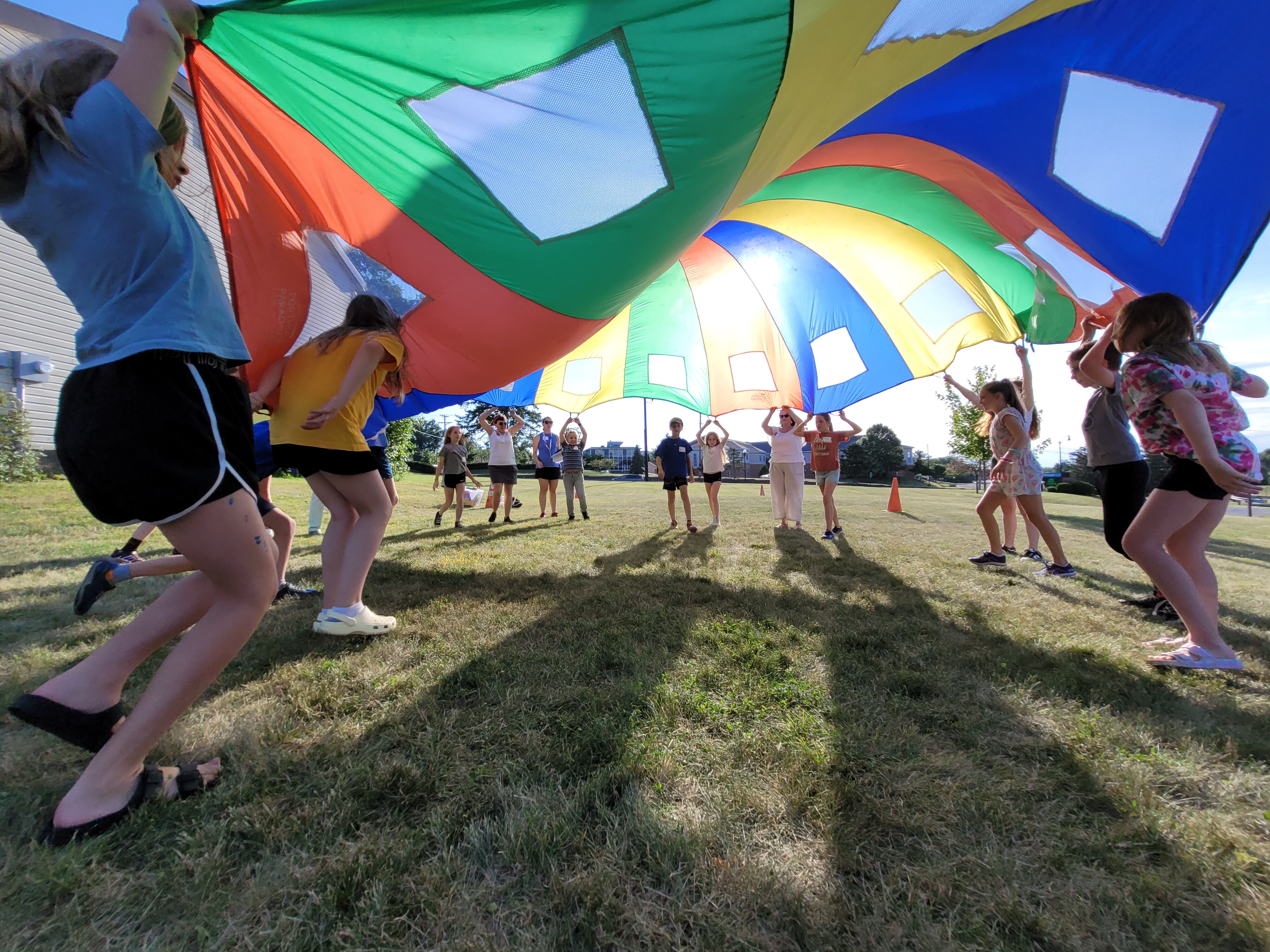Sharing the Peace

John 14:23-29
In my younger days I sang in a choir that performed a Concert for Peace. I was proud of the performance. It was at Yale, and I had a solo and was glad to make a statement about the need for peace in our world. Afterward we gathered outside to chat with friends and acquaintances, and among the praise for the concert was this comment: “I am done talking about peace without doing anything about it.”
The comment brought me up short. The guy who said it was a family friend who worked in court-ordered mediation. He spent a lot of time with people in family and community disputes who had no intention of making peace. It was an awkward moment, but he had a point. Our concert wasn’t going to change those people.
I thought a lot about his comment over the intervening years. It is much easier to talk and sing about peace than to actually make peace with others or cultivate it for yourself.
Today in our gospel lesson, Jesus promises: “Peace I leave with you; my peace I give to you.” Jesus says these words to his disciples on the last night of his life. It’s part of an extended farewell speech that stretches five chapters in John. Peace is Jesus’ parting gift to his confused and worried disciples.
But what is this peace that Jesus offers? There are many forms of peace. Governments can enforce peace through law enforcement and the military. Teachers and parents can require children to use their words, not their fists. Employment can be contingent on following a code of ethics and communities can sanction behaviors that threaten social cohesion.
All of these are ways that peace is mandated from the outside. These kinds of peace restrain violence and set up ways for people to live together without undue stress. That’s all good.
Jesus, though, is talking about a different kind of peace. “Peace I leave with you; my peace I give to you. I do not give to you as the world gives.” Jesus’ peace is a gift that abides within us. It is not something that is enforced from the outside, but something that changes people from the inside. Peace is an attribute of the Holy Spirit – the advocate, as the Gospel of John says. This word, however, can also be translated as comforter or helper. The Holy Spirit gives peace, comfort, help that is not contingent upon externals. It is a gift that grows from within.
Jesus’ gift of peace is something that we receive. It is also a gift we need to cultivate. I have been struck this week by Jesus' use of the word “home.” “Those who love me will keep my word, and my Father will love them, And we will come to them and make our home in them.” The word home here does not mean “house” the physical edifice, but rather the internal place of belonging. When we spend time with God, we experience connection and belonging, love and safety, nurture and rest – in other words, Jesus’ gift of peace.
When we make time to experience our relationship with God and receive Jesus’ peace, we can then share it with others. That’s how God intended it. At his resurrection appearance to the disciples, Jesus repeated, “Peace be with you.” He then commissioned them to forgive sins. Jesus coupled the receiving and sharing peace, because as his disciples we are called to do both.
I spent some time reading this week about the Dayton Peace Accords which were signed 30 years ago at the Wright Patterson Air Force Base. The accords ended the brutal Bosnian war which killed 100,000 people, many of whom were civilians. The Air Force base was chosen because it was self-contained. That meant the three warring factions had to focus on the discussions. Also, the quarters on base where the delegations stayed were almost identical, communicating that all were on equal ground. The focus on fairness, listening, and sticking with the peace process was critical in creating an agreement and ending the war.
The Dayton Accords impress upon me the time and commitment to peacemaking. Most of us will not have the responsibility to negotiate peace between nations, but all of us are called to work for greater peace in our daily lives. And so we need to spend time in prayer to experience Jesus' peace for ourselves and figure out how to create the conditions where peace can grow with others. Jesus’ peace is not simply a personal practice. Jesus’ peace has implications for how we live our outward lives. Start where you are. We can’t change other people, but we can work to create the conditions for peace. Peacemaking is always risky. You need to cultivate Christ’s inner peace as a spiritual well and receive the peace of Christ as your safe place, your home where you are loved. If you feel safe, secure, and loved, you can extend yourself into places of risk.
The Dayton Peace Accords were a temporary agreement that was meant to be followed with a lasting one. They never got to a more permanent solution. The NATO Parliamentary Assembly goes on as we speak, addressing all kinds of places in our world that need peace on this Memorial Day weekend, a time when we honor those who died in war and pray for the day when violence will cease.
Considering these realities, we need to do more than sing about peace. Like that critic said to me long ago, we need to do something about it. In our baptismal vows, we promise to work for justice and peace in all the earth. It is a big promise. We all begin in the same place – with Jesus’ gift of peace. That’s why we share the peace every Sunday in worship. It’s one of the most ancient parts of Christian worship. And today we’ve moved it to this spot after the sermon, because God’s loving intentions for the world starts with us, here, in receiving and sharing the peace of Christ. So let us do that now, with intentionality, with prayer, and as a sign of encouragement to one another. Are you ready? The peace of Christ be with you always.




Login To Leave Comment